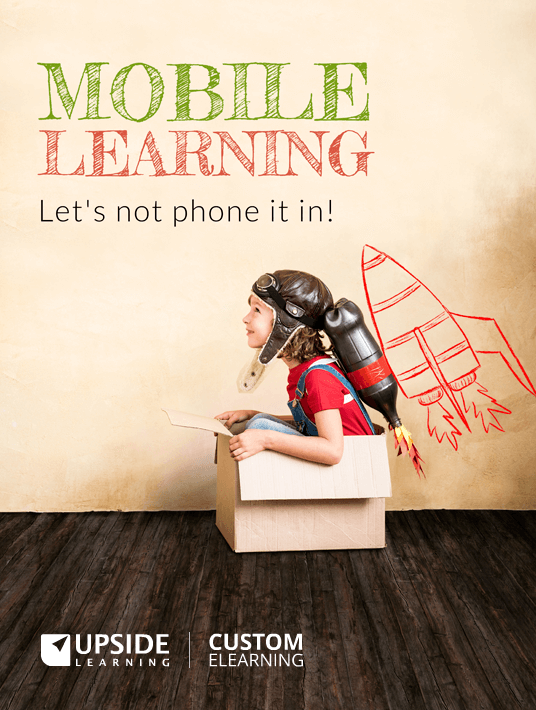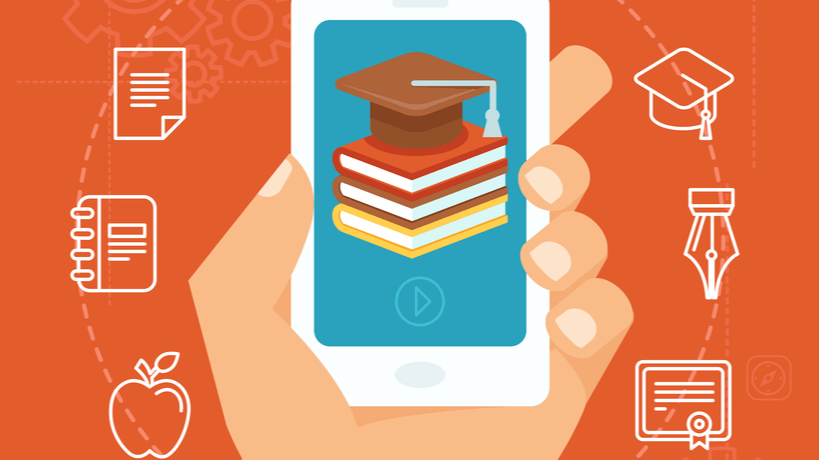How Effective Is The Use Of Mobile Learning For Employee Onboarding?
Recruitment is a time-consuming process, it is expensive too. The recruiting team constantly strives to bring the best talent on board, making sure their skill sets aligns with the job role. Now, if there is no structured onboarding process in place, employee engagement is doomed.

First impression always counts. We all know it. Organizations that do not have a structured onboarding process often find their employees walk away from the sessions anxious and dazzled. According to a research survey by Wells, way back in 2005, 4% of new employees leave after they do not have a satisfactory first day while others decide within the first 30 days whether they feel welcome in their new role. Another report from Abardeen (2015) shows companies plan to increase their hiring in coming years but around 32% have a formal onboarding process.
Given these statistics, onboarding proves to be one of the effective ways to align new hires with the organizational culture and their expectations. Without it being well structured, the chances of employee departure skyrocket. So what can an organization do to make their employees feel more welcomed, informed and prepared? How can they help new hires acquire knowledge, skills, behavior and attitude that help them grow in their individual role?
We have a clear solution to that: To develop a structured and integrated onboarding program that increases employee engagement and help them reach productivity level faster. While most organizations have an induction or training program in place, they seem be revamped presentations comprising of lengthy documents (characterized by facts, figures and faces, all packed in too less hours). This is where mobile learning comes to the rescue.
Mobile learning was listed as one of the six trends that will change the workplace, according to T+D magazine (Source: Ketter). With more number of professionals using mobile for learning and support their performance, it clearly indicates the chances of mobile learning the primary way employees access learning.
According to an ATD study report (2015), 38% of the managers think that the learning programs meet the needs of the learners. LinkedIn’s 2017 Workplace Learning Report even states that employees expect a lot of improvement in their existing training programs.
Similar studies have also proved that organizations that have leveraged mobile learning end up with greater employee retention compared to those who don’t. Self-directed, anytime and anywhere learning approach is what benefits the most keeping in mind the time constraint, geographical location and accessibility of the employees.
4 Benefits Of Mobile Learning For Employee Onboarding
1. Learning Designed For Millennial Workforce
With the present workforce comprising of mostly Millennials (also known as digital natives), mobile learning is perfectly suited for their training needs. When you plan to design an onboarding program for the present workforce, it should be engaging as well as enticing enough to hold them back throughout the onboarding process.
2. Bite-Sized Content Helps In Greater Retention Of Knowledge
When employees gain knowledge from training programs, it is quite likely they are going to use the knowledge to improve their productivity. What most onboarding programs tend to do is they cram a lot of extraneous information (since there is so much to cover, from culture to workplace ethics to employee benefits). However, this leaves the employees blank with them not able to retain a mere 10% of what they have learnt.
3. Mobile Learning Is Designed To Achieve The Desired Effect Within A Short Time Frame
The learning modules are bite-sized making it easier for new employees to retain information. A report by Werner & da Gama says, a global pharmaceutical company showed an overall 53% improvement in their knowledge retention when mobile learning was used to introduce a brand new product. In addition, they can be easily accessed in times of need, allowing learning to immediately put to work.

4. Personalized Learning Increases Employee Engagement
The traditional onboarding programs (with a lot of facts & figures displayed on screen) seem to be too ‘formal’ in nature, leaving the new hires feeling uninspired. Mobile learning (owing to the popularity of the technology) offers a personal connection enabling the learners to learn at their own pace. We are already accustomed with this informal space where we do a good deal of learning. So, for an instance, a new employee can always do a quick Google search for something they are unfamiliar with or watch videos when they get stuck in some process.
When organizations have their onboarding content on mobile, they make it more accessible to their employees. Now, they can schedule their learning and this adds to a whole new personalized experience contributing to more engagement.
A structured onboarding program takes time and effort but is worth the investment. Aberdeen Group, in one of their benchmark report, stated “organizations with standard onboarding process experienced 54% more new hire productivity, 50% greater retention among new hires, twice the level of new hire engagement”.
Pre-Boarding: Why Is It Equally Effective As Onboarding?
Ideally, onboarding is the process through which new hires acquire skills, knowledge, behavior and attitude ensuring their success. But an effective program starts before even the new hire joins. It has become very important to have equally important pre-boarding process in place. This helps employees to sound more confident through orientation sessions, training programs, informal interactions and use of technology.
So, how effective is your employee onboarding process? Have you considered mobile learning to design your onboarding program yet? Download the free ebook Mobile Learning: Let’s Not Phone It In!
Related articles:
1. Using Mobility For ‘Live’ Performance Support
2. Mobility And Organizational Culture And Environment
3. Why You Need To Leverage Mobile For Performance Support
4. Change Adoption Training And Mobility








